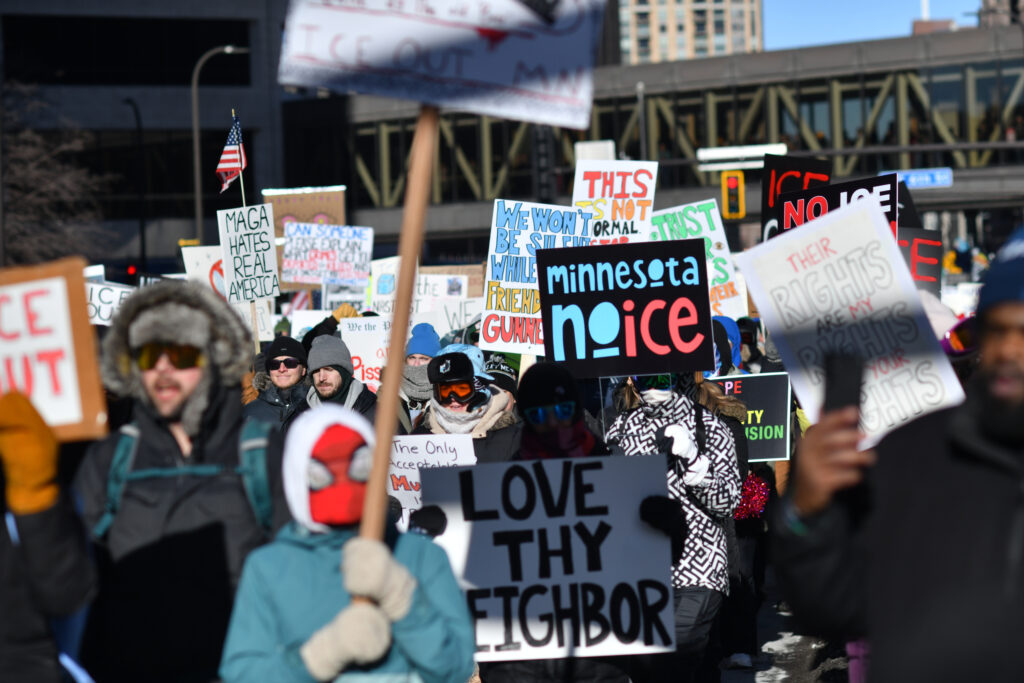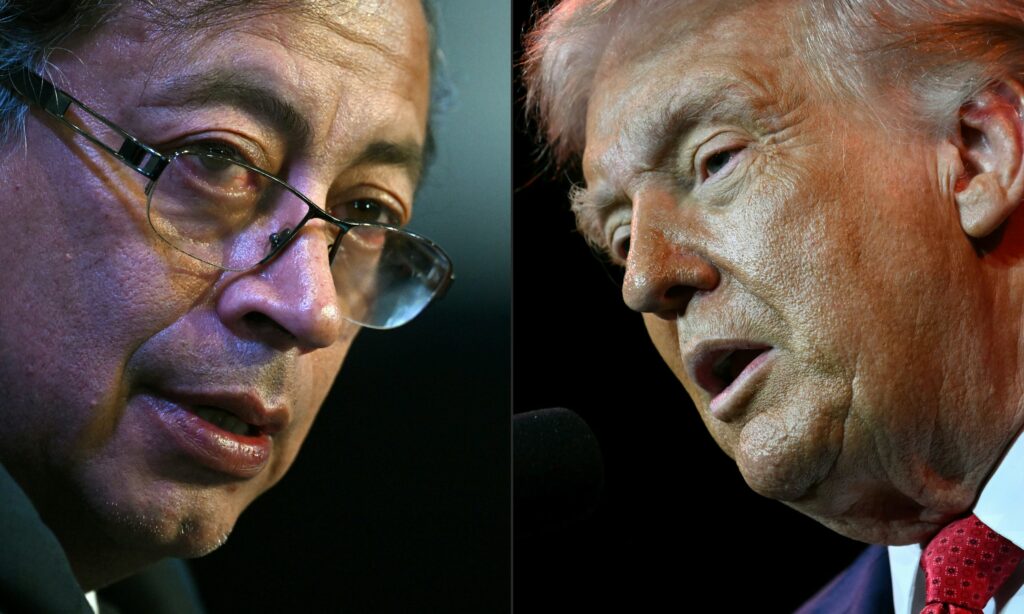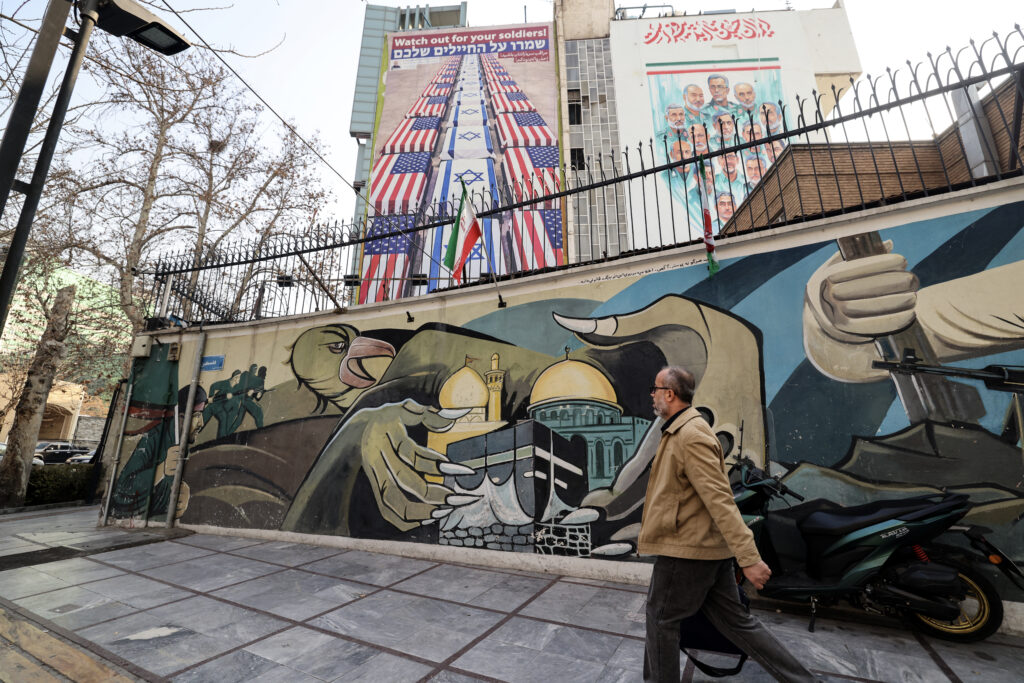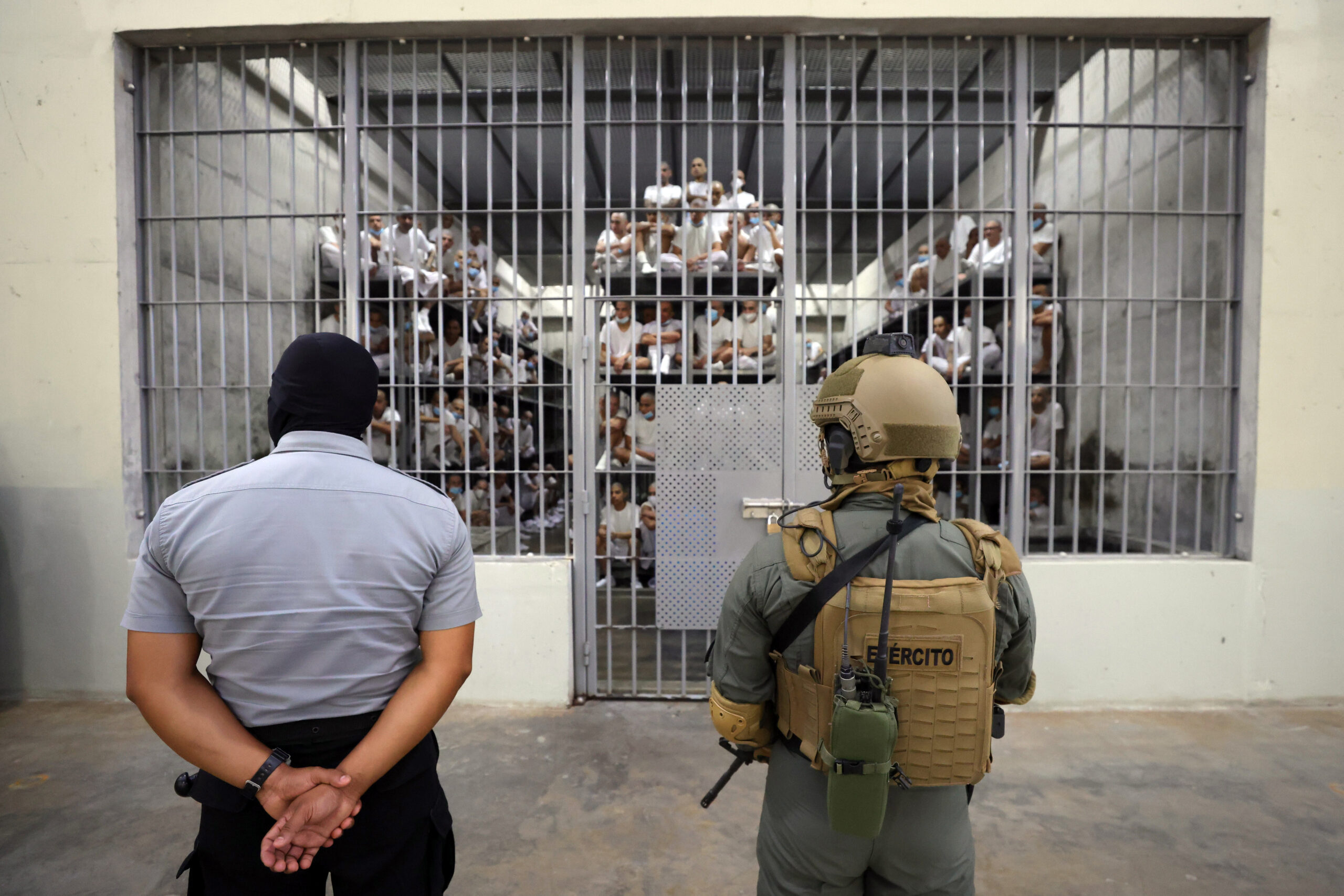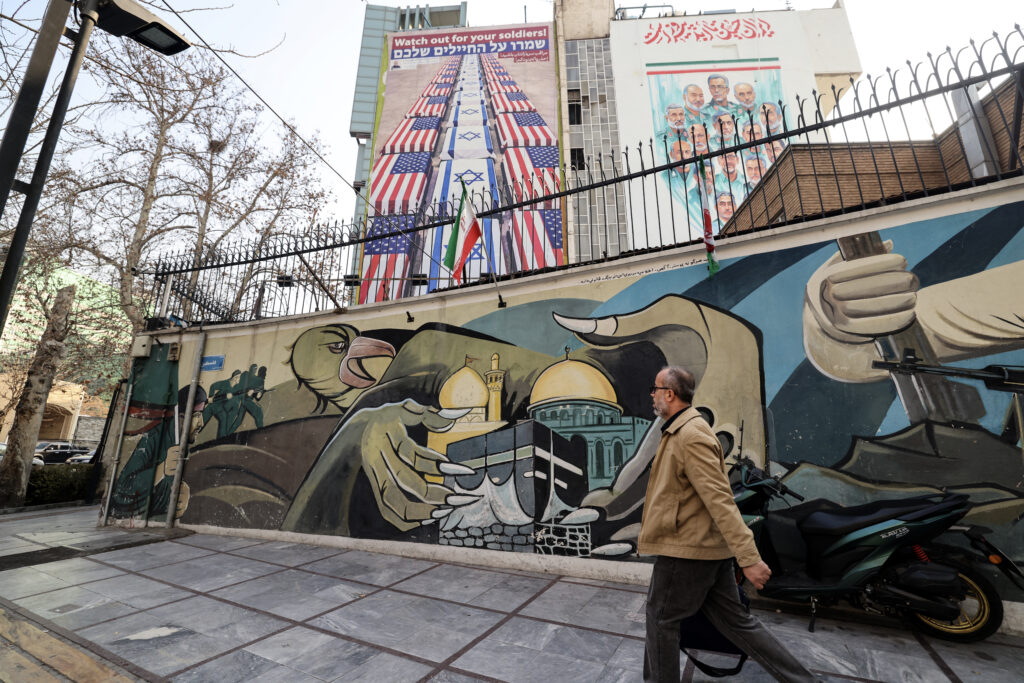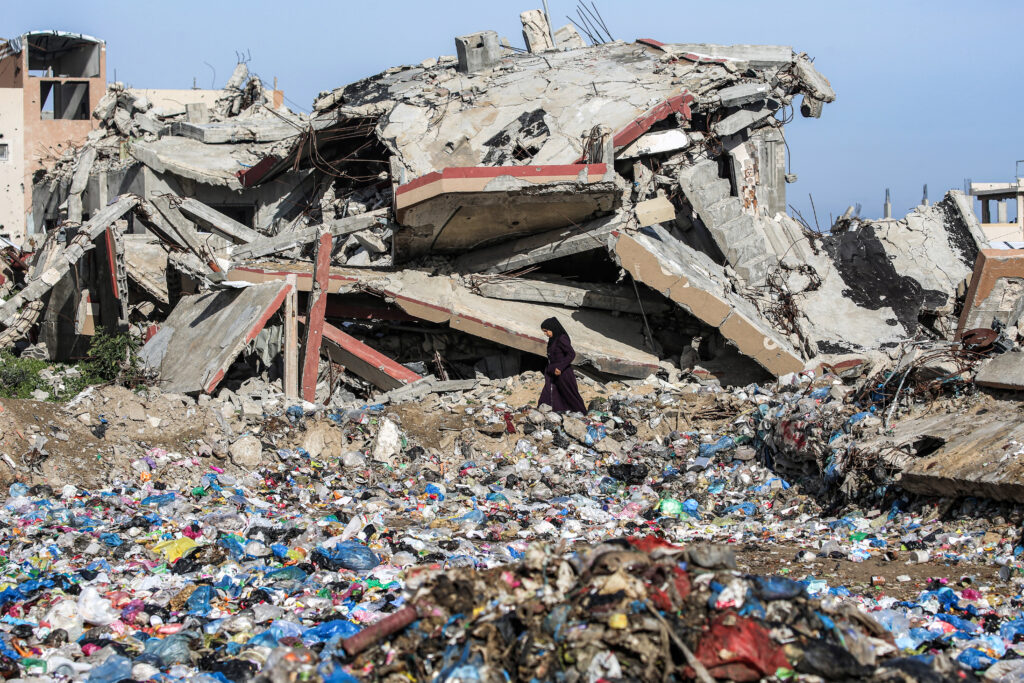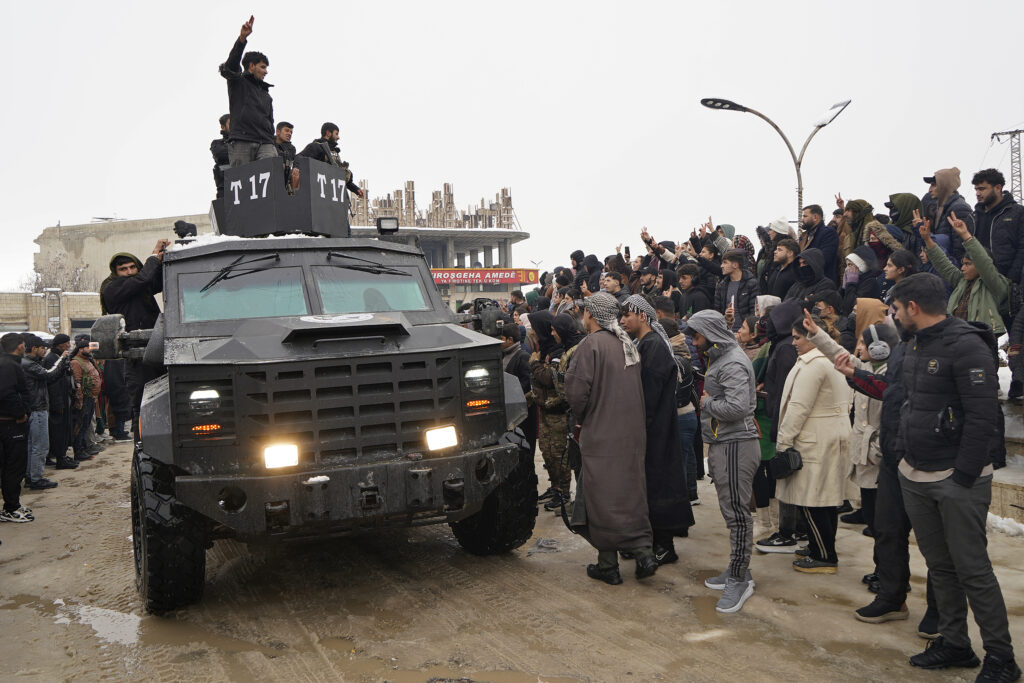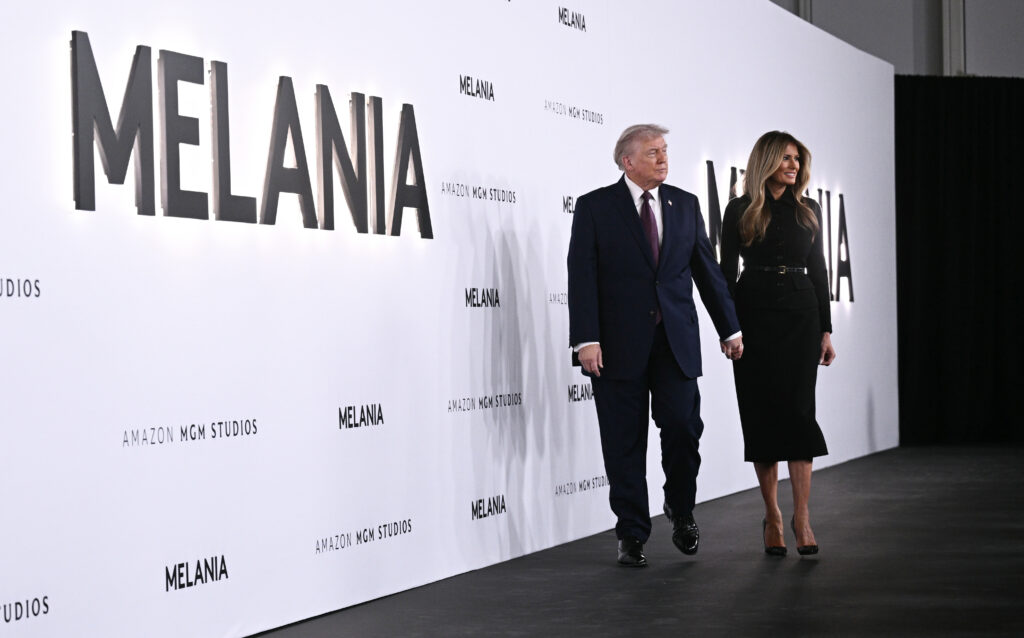‘Standing up for freedom’: Minneapolis proud of peaceful ICE protests
Marchers braving arctic cold to join thousands of others appalled by the Trump administration’s immigration crackdown in Minneapolis lauded how peaceful the protests have remained despite fury over masked federal agents’ arrests and killings.”We learned so much from the Floyd protests. We had a bunch of cops that were rogues — white supremacists. They had warrior training. Now we have a wonderful police department and now I think people… know to speak up and to act peacefully,” said protester Mary, 67.The Midwest’s largest city, Minneapolis saw prolonged unrest after the 2020 murder by police of George Floyd, a Black man whose killing sparked the Black Lives Matter movement.At the protest Friday, police were barely visible as tens of thousands of people turned out under the banner of “National Shutdown,” with Minneapolis police telling AFP there were no arrests, and no reports of injuries or property damage.Ahead of the protest, President Donald Trump accused Alex Pretti, shot dead by federal officers in Minneapolis while helping women who had been pepper sprayed, of “abuse and anger” after video emerged of him in a heated exchange with agents.Mary, who declined to give a last name, said she was horrified by how federal officers including Immigration and Customs Enforcement (ICE) agents have executed their push to round up undocumented migrants across Minnesota, a deployment that has seen officers shoot dead two US civilians.”They’re scooping up anybody. You know, there’s innocent people getting scooped up right and left, and it’s far more terrifying than when George Floyd was here. I think it’s important for our voices to be heard,” said Mary.There have been daily noisy protests at the Whipple federal building where ICE agents stage ahead of raids. On Friday morning, sheriffs deputies ran into a hostile crowd of activists and dragged away one of the demonstrators, AFP saw.- ‘Proud to be a Minnesotan’ -One gloved protester held up a widely shared image of a federal officer deployed to the city skidding on ice, captioned “baby’s first winter,” while another clutched a sign reading “gnomes in, Noem out” — a reference to Homeland Security Secretary Kristi Noem — at Friday’s protest.Sporting a giant papier mache head modeled on Noem, protester Connie described the official and Trump as “the criminals at large that are really causing so much trouble.”She said the peaceful demonstrations since the start of the sprawling immigration raids were a strength of the movement galvanizing against the raids.”We’re just trying to get them out of here. That’s all we want…They say, ‘Oh, you want all these criminals?’ Yeah, we’ll take them. You just get out of here. You’re the criminal. “We have 2,000, 3,000 ICE here — they’re the criminals.”She added that she was “100 percent” sure federal officers were seeking to provoke local people.”(ICE) are extremely aggressive, very intimidating. They’re out to cause trouble,” she said.Native Minnesotan protester Paul Chouinard said he thought Trump would “probably love for it to turn into something more so he could make an example — but that’s not what Minnesotans want.””You don’t fight force and guns with violence, you know? We’re gonna use our voices in the right way and make our opinions known to hopefully change this.”Nearby a child screamed “ICE out of Minnesota” into a bullhorn to huge cheers from the crowd, many of whom wore ski gear to brave the temperatures that hovered around 1F (-17C). There were protest actions and marches in cities across the United States including New York, Boston and Los Angeles.Protester Shushta Santhana, 24, whose parents emigrated to the United States 30 year ago, said “it’s really cool to see the community come together.”She pointed to “grassroots organizations pulling together to get groceries to people and protect (migrant) people when they’re leaving work and leaving the courts and all sorts of things.””We’ve done a good job here. I’m very proud to be a Minnesotan right now.”Retiree Lisa Schmid told AFP that Minneapolis would become known as “the city that stood up for freedom.”
